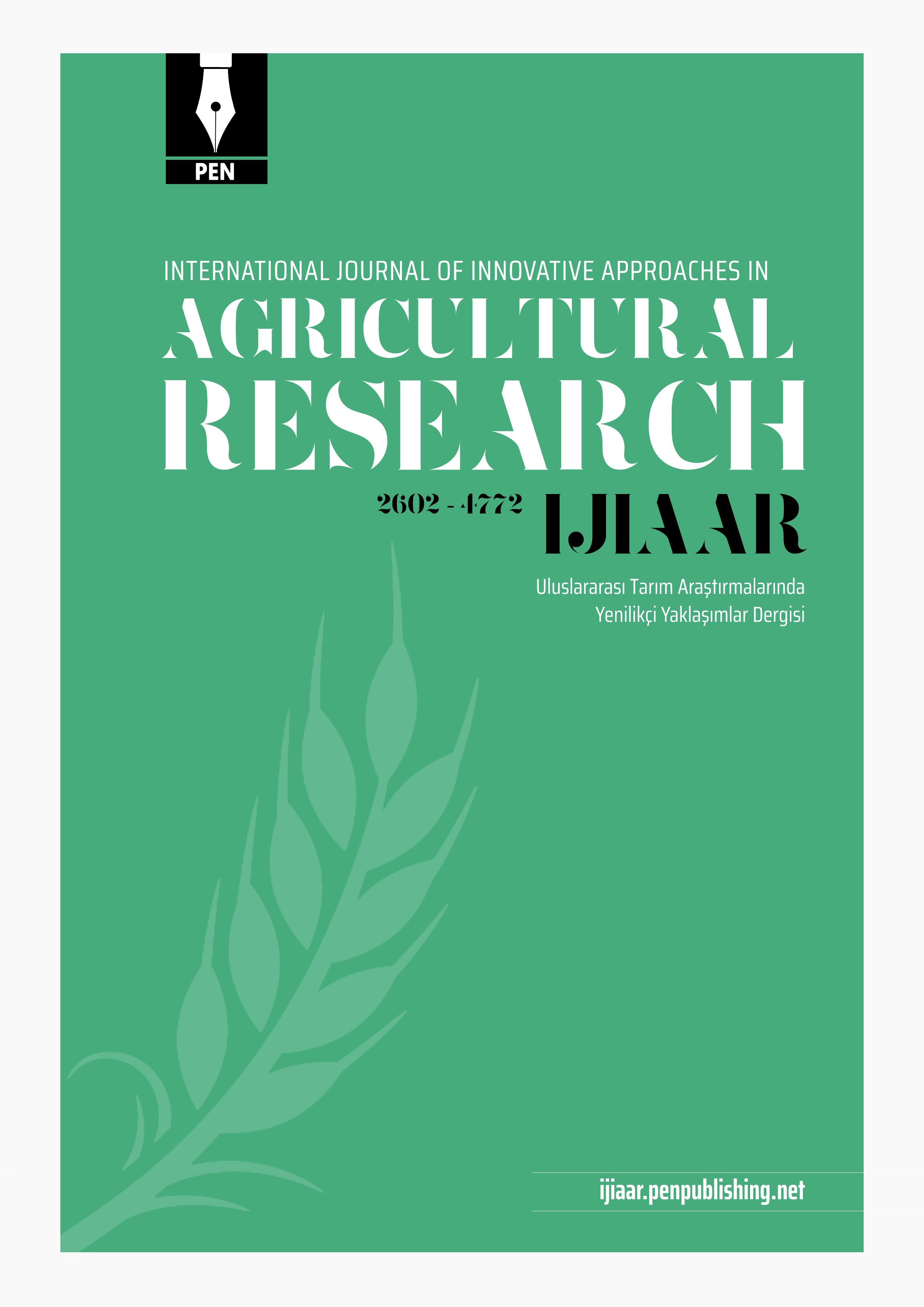
Uluslararası Tarım Araştırmalarında Yenilikçi Yaklaşımlar Dergisi
Yazarlar: Nadjım Semcheddıne
Konular:-
DOI:10.29329/ijiaar.2020.320.4
Anahtar Kelimeler:Chlorophyll content,Tolerance,Wheat,Water stress,Yield
Özet: In the semi-arid high plains of Algeria, water stress is one of the most significant factors restricting wheat production. This study aims at analyzing water stress effect on durum wheat behavior with a particular focus on relationships between some agronomical and physiological traits. Ten genotypes were tested under rain-fed and full-irrigated conditions in semi-arid climate of Eastern Algeria. The experiment was led down in a randomized complete block design at the experimental field of Natural and Life Sciences Faculty of Sétif1 University. Yield and its components, leaf relative water content, leaf specific weight, grain-filling rate and duration and leaf chlorophyll content were measured. Significant genotypic and environmental variations were observed for major measured traits. Water stress significantly decreased the potential yield by 28%. A significant and strong correlation was observed between agronomical and physiological characteristics. In both stress and non stress conditions, grain yield was positively and significantly associated with: Chlorophyll content (r = 0.893), relative water content (r = 0.956) and grain filling duration (r = 0.853). Wheat productivity was highly associated with high photosynthetic activities, good water status and long grain filling duration. This finding suggests using these traits as tools for screening durum wheat tolerance to water stress.